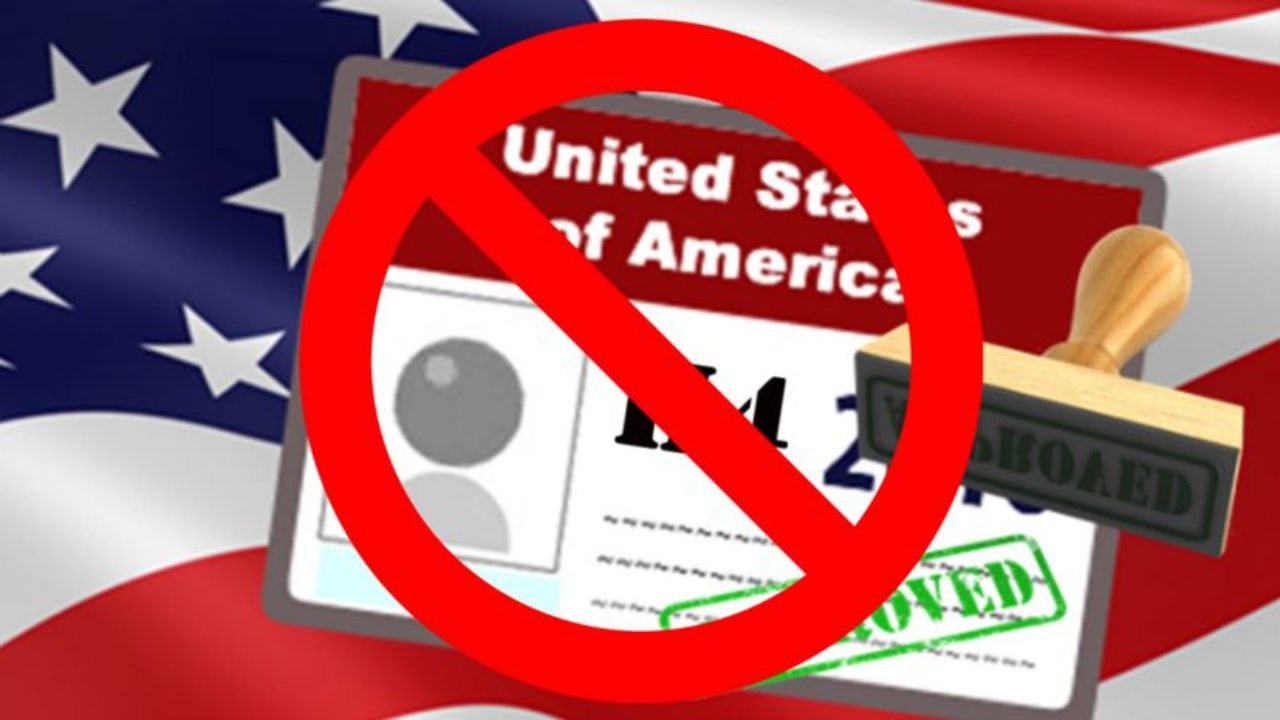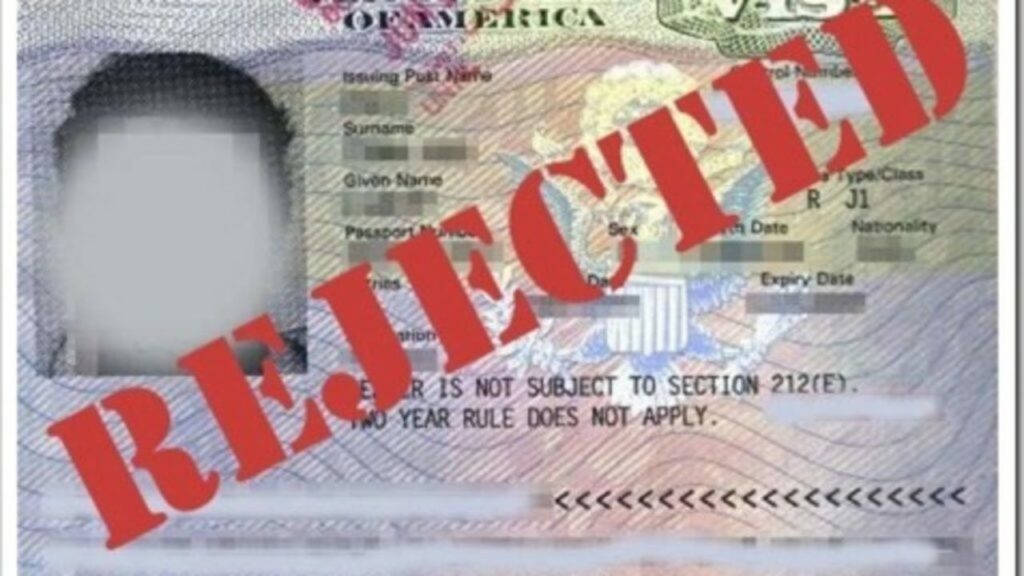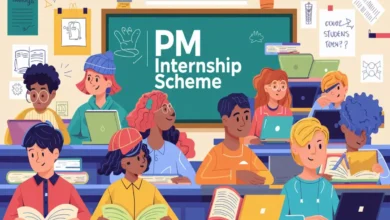H-1B Visa Denied: 70 Indians Sue US Government Over Visa Rejections Due to Employer Fraud
Around 70 nations are taking legal action against US Government for denying their H-1B Visa due to employer fraud in their own nation.

H-1B Visa Denied: 70 Indians Sue US Government Over Visa Rejections Due to Employer Fraud
In an astonishing turn of events, nearly 70 Indian nationals have brought suit against the United States government in court, accusing the Department of Homeland Security (DHS) of wrongfully refusing them H-1B visas because their employers allegedly committed fraud. A contentious discussion has been sparked by the lawsuit, which has thrown light on the intricate interactions between foreign graduates, their employers, as well as the US immigration system.
Denial of H-1B Visas- The Battle for Justice
The alleged denial of H-1B speciality occupation visas to Indian graduates who were employed by reputable enterprises in the US is at the core of the controversy. These alumni arrived in the nation via a training program intended for international students who had graduated from US educational institutions and colleges. Despite their claims of innocence as well as denials of having been involved in any fraudulent actions carried out by their employers, they were unjustly caught in the middle of the controversy.
A non-immigrant visa called the H1B enables companies in the United States to hire foreign workers for specialized positions that need for theoretical or technical competence. It is essential to the hiring of tens of thousands of workers each year from nations like China and India by the technology giants. According to a US Congress regulation, the most popular visa has an annual numerical limit cap of 65,000 visas per fiscal year. The cap is waived for the first twenty thousand petitions submitted on behalf of those beneficiaries who have earned a US master’s degree or higher.
Unravelling the Allegations: Association without Culpability
The plaintiffs claim that they were unfairly punished simply because of their affiliation with companies that were later discovered to have engaged in fraud. The case, which was submitted to a federal district court in Washington state, emphasizes that the DHS accepted responsibility for everyone connected to these businesses. The plaintiffs contend that this damaged their reputations and future opportunities without giving them a chance to refute the accusations made against them.
The plaintiffs’ counsel, Jonathan Wasden of Wasden Law, stressed the injustice being done because of the government’s approach. He claimed, the agency made the assumption that anyone who had contact with these companies was in some way responsible for making false representations to the American government in order to obtain a visa or immigration advantage. This draws attention to a structural issue where people are judged collectively as opposed to individually according to their factual details.

Seeking Redressal: A Bid for Fairness and Due Process
Those involved in litigation are turning to the legal system for relief. They are requesting that the court reverse the DHS’s judgment regarding their visa applications and order the department to provide them the opportunity to reply to any fraud-related charges before making a final judgement regarding their eligibility to enter the US. The lawsuit alleges that the agency’s actions broke the Administrative Procedure Act as well as constituted as being procedurally flawed.
Systemic Flaws: Beyond the Surface
The debate has drawn attention to more general concerns about the US immigration system, especially with regard to how foreign graduates who want to work and advance their professional lives in the nation are treated. The Optional Practical Training program is used by international students, many of whom have STEM degrees, to earn valuable job experience and compete for H-1B visas, which provide a longer-term status.
The Alleged Scheme: A Web of Deception
Employees of IT employment firms Andwill Technologies, AzTech Technologies LLC, Integra Technologies LLC, as well as WireClass Technologies LLC were actually the ones who made up the plaintiffs of the complaint. The aforementioned companies were first certified by the E-Verify employment verification program and permitted to take part in the OPT program. The alleged involvement of these companies in a plan to swindle the government, educational facilities, as well as international students was later discovered.
Plaintiff’s Case: Siddhartha Kalavala Venkata
Siddhartha Kalavala Venkata, one of the claimants, is a prime example of the difficulties that the impacted graduates must deal with. After receiving his master’s degree from the New York Institute of Technology in 2016 and beginning employment through the OPT program, Venkata first worked for Integra Technologies LLC. Integra Technologies, which will continue to employ over 700 people with student visas through 2019, was prominently listed as a major participant in the OPT program. The company’s claim that students would work on projects for well-known companies like The Walt Disney Co. and Apple Inc. turned proved to be false when students were informed later that they were responsible for paying for additional training to improve their skills.
After some time, Venkata quit Integra Technologies to work for another IT company. His efforts to switch from an F-1 visa to an H-1B visa were severely hampered when the DHS rejected his H-1B visa application. Because of the alleged fraud or wilful misrepresentation, he was found to be inadmissible. Venkata was upset by this rejection, calling his emotions “complete pain.” He vented his annoyance, pointing out that if there had been mistakes, they had been made by others rather than by him. The rejection of the visa was a serious setback because it prevented him from taking advantage of the chances the US had previously made available to him.
The lawsuit’s plaintiffs are asking the court to get involved in order to overturn the DHS’s judgments on their visa applications. They are asking that before making a determination about their admissibility to the US, the agency be compelled to provide them the opportunity to respond to any claims of fraud. The complaint alleges that the DHS exceeded its jurisdiction and classified the plaintiffs as inadmissible without carefully reviewing the facts, infringing the Administrative Procedure Act. The plaintiffs further contend that the DHS’s actions lacked adequate procedural safeguards because they were not made aware of the accusations made against them.

OPT Program Statistics
The Optional Practical Training program continues to draw a large number of people. More than 117,000 people were expected to participate in the program in 2022, with the goal of improving their employment prospects in the United States. This program, regulated by Immigration and Customs Enforcement, assists international graduates in gaining practical experience in their fields of study while negotiating the difficult US immigration landscape.
Innocence Amidst Allegations: The DHS’s Approach Challenged
The lawsuit claims that instead of protecting the students trapped in the fraudulent web, the DHS regarded them as co-conspirators who knowingly participated in such unlawful actions. This strategy has sparked outrage among many impacted employees, who believe their innocence has been tainted by their employers’ activities.
Implications of the Lawsuit
The initiation of the legal proceedings against the US has focused attention on the complex interactions amongst foreign graduates, companies as well as the US immigration system. This judicial case has prompted heated debate, shedding light on the difficult terrain of immigration policy and procedures. The crux of the issue is that these people are being treated as alleged partners in employer-driven fraud, as opposed to simply innocent victims caught in a deceitful web.
The evolving story of the lawsuit emphasizes the importance of fair and just immigration systems which emphasize due process as well as individual evaluation. The accused students exhibit a common attitude of outrage over what they perceive to be a miscarriage of justice as they become embroiled in the legal fallout of their bosses’ conduct. The predicament emphasizes the urgent requirement to strike a careful balance between the affiliations as well as accusations that accompany immigration applications and the fundamental ideas of personal responsibility.
The effects of this legal dispute will spread far beyond the courtroom as it develops. The result of this action will unavoidably influence the conversation that is now being had about visa rejections and how foreign graduates are treated. It highlights the need for an extensive reconsideration of immigration policy to address complex situations where people’s activities are linked with the activities of their employers.
In the end, this legal dispute serves as an important reminder of the complexity of the current immigration procedures. It prompts us to consider the wider ramifications of situations when the distinction between innocence and culpability is hazy. In addition to having an effect on the plaintiffs’ lives, a just and equitable conclusion to this legal dispute will help us gain a better understanding of the complex interactions between individuals, organizational structures, and the pursuit of opportunities across borders.





